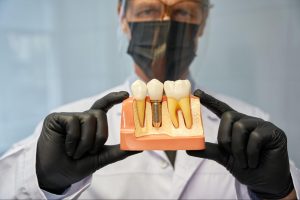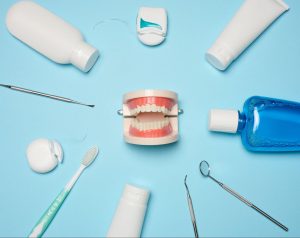A root canal can be a relief when dealing with a painful tooth infection. While the procedure removes decay and saves the tooth, the recovery process is often a significant concern for patients. Many wonder how long the discomfort will last and when they can return to normal activities. The healing process varies, and understanding the timeline can ease anxiety. Knowing what to expect after a root canal ensures a smoother recovery and better long-term oral health.
The Root Canal Healing Timeline
A root canal typically heals within a few days to a week, but the exact timeline depends on various factors. Some people experience mild soreness for only a day, while others may feel discomfort for a week or more. Healing speed depends on infection severity, oral care, and overall health. Understanding the different stages of recovery helps manage expectations and ensure proper aftercare:
Immediate Recovery After a Root Canal
The first few hours after a root canal are usually the most noticeable. Since the procedure involves numbing the tooth and surrounding area, the mouth may stay numb for a few hours. As the anesthesia wears off, mild soreness or sensitivity can develop. Swelling is uncommon but may happen in cases of severe infection. Over-the-counter pain relievers and avoiding hard foods help minimize discomfort.
Healing Progress Over the First Week
Most discomfort fades within three to five days, allowing patients to resume regular eating habits. The treated tooth may feel sensitive when chewing, especially in the first few days. Keeping the area clean by brushing and flossing gently speeds up recovery. Following the dentist’s instructions, such as avoiding sticky or hard foods, helps prevent unnecessary irritation. By the end of the week, most people notice a significant improvement in their comfort.
Full Healing and Long-Term Recovery
Complete healing takes a few weeks to a month, depending on individual factors. Once the pain subsides, the tooth adjusts, especially after receiving a permanent dental crown. Some sensitivity may persist for a few weeks but should gradually fade. Regular dental checkups ensure the tooth remains healthy and free from complications. Proper oral hygiene and routine visits help prevent reinfection and keep the restored tooth in good condition.
Factors Affecting How Long a Root Canal Takes to Heal
Several factors influence how quickly a root canal heals, ranging from the severity of the infection to personal health. Some people recover within days, while others take longer due to complications or slow healing. Proper aftercare plays a significant role in recovery speed. Knowing what affects healing time helps make necessary adjustments for a smoother process:
Severity of the Infection
The level of infection before treatment impacts how long healing takes. A mild infection with minimal inflammation tends to heal faster. In contrast, a deep infection affecting surrounding tissues may require more time to resolve fully. In severe cases, a dentist may prescribe antibiotics to clear lingering bacteria. Proper aftercare and medication help ensure complete healing.
Post-Treatment Care and Habits
Recovery speed depends heavily on how well a patient follows post-treatment care. Avoiding hard, crunchy, or sticky foods reduces strain on the treated tooth. Maintaining good oral hygiene prevents bacteria from interfering with healing. Rinsing with warm salt water can reduce irritation and keep the area clean. Regular follow-ups allow dentists to monitor progress and address concerns early.
Overall Health and Immune System
General health plays a role in how fast tissues recover. Those with strong immune systems tend to heal faster than those with diabetes or autoimmune disorders. Smoking and poor nutrition can slow the healing process and increase the risk of complications. Staying hydrated, eating nutrient-rich foods, and avoiding tobacco products support a quicker recovery. Taking care of overall health improves healing efficiency and long-term oral health.
Signs of Smooth or Delayed Healing After a Root Canal
Most people experience minor discomfort after a root canal, but knowing the difference between normal healing and complications is essential. Some symptoms indicate that everything is progressing well, while others suggest an issue that needs attention. Paying attention to these signs helps determine whether additional care is required. Recognizing potential problems early on can prevent more serious complications:
Normal Healing Symptoms
Mild soreness and sensitivity after the procedure are common and should improve over time. Some people may experience slight discomfort when chewing, especially on the treated side. The gum around the tooth might feel tender for a few days. Swelling, if present, should subside within a couple of days. A gradual decrease in discomfort is a sign of healing.
Warning Signs of Complications
Certain symptoms indicate a problem that requires immediate attention. Severe pain that persists beyond a week may signal an underlying issue, such as an incomplete root canal or reinfection. Swelling that worsens instead of improving needs evaluation by a dentist. A persistent bad taste or pus-like discharge could mean bacteria are still present. The tooth should be checked immediately if a filling or temporary crown becomes loose or falls out.
How to Speed Up Root Canal Healing
Taking the proper steps after a root canal can make a big difference in healing time. Proper aftercare ensures a smooth recovery and minimizes discomfort. Good oral hygiene, a soft diet, and avoiding certain habits contribute to faster healing. Making small adjustments to daily routines helps in reducing unnecessary delays.
Best Foods for Faster Healing
Soft foods are the best choice after a root canal, as they prevent pressure on the treated tooth. Mashed potatoes, yogurt, smoothies, and soups provide nutrients without irritating the area. Warm (not hot) liquids can help soothe mild discomfort. Avoiding crunchy, sticky, or very hot foods prevents unnecessary stress on the tooth. Eating a balanced diet supports overall healing and speeds up recovery.
Oral Hygiene Tips for Recovery
Keeping the mouth clean prevents infections and promotes faster healing. Brushing should be done gently to avoid irritating the treated tooth. Antibacterial mouthwash or saltwater rinses help kill bacteria and reduce swelling. Flossing carefully around the area prevents food buildup without irritating. Following a dentist’s hygiene recommendations reduces the risk of post-treatment complications.
When to Resume Normal Activities
Most people can return to work or daily routines the day after a root canal. However, strenuous activities, such as intense workouts, should be avoided for a few days. Chewing on the treated side should be limited until discomfort fades. The dentist may advise waiting a few days before consuming hot or cold foods. Gradually reintroducing normal eating and activity levels ensures a smoother recovery.
Professional Advice for Faster Root Canal Healing
With proper care, healing after a root canal can be quick and smooth. Dentists recommend specific steps to minimize discomfort and prevent complications. Following expert advice ensures the treated tooth recovers fully and remains healthy. These tips help speed up healing while reducing the risk of reinfection:
Follow Your Dentist’s Aftercare Instructions
Dentists provide personalized aftercare guidelines based on the procedure and infection severity. If prescribed, taking antibiotics helps prevent reinfection. Using pain relievers as directed keeps discomfort under control. Ignoring aftercare instructions can lead to unnecessary complications and delayed healing. Attending follow-up appointments allows dentists to monitor progress and make adjustments if needed.
Eat Soft, Nutrient-Rich Foods for Recovery
The proper diet supports healing and prevents irritation to the treated tooth. Soft foods like mashed potatoes, yogurt, scrambled eggs, and soup are easy to eat. Avoiding crunchy, sticky, or extremely hot foods prevents discomfort and protects the temporary filling. Staying hydrated helps maintain a healthy oral environment for recovery. A balanced diet strengthens the immune system, aiding faster healing.
Maintain Gentle but Effective Oral Hygiene
Keeping the treated area clean reduces the risk of infection. Brushing gently with a soft-bristled toothbrush prevents irritation. Rinsing with salt water or an antibacterial mouthwash helps kill bacteria without harming the healing gum tissue. Flossing carefully around the treated tooth prevents plaque buildup. Avoiding vigorous rinsing or aggressive brushing prevents unnecessary pain and irritation.
Avoid Smoking and Alcohol During Recovery
Smoking and alcohol can slow healing and increase the risk of complications. Tobacco reduces blood flow, making it harder for tissues to recover. Alcohol can irritate the gums and interfere with prescribed medications. Avoiding these substances for at least a few days after the procedure promotes faster healing. A smoke-free and alcohol-free period allows the treated area to heal without unnecessary stress.
Rest and Give Your Tooth Time to Heal
Resting after a root canal allows the body to focus on recovery. Avoiding heavy physical activities for the first 24-48 hours prevents unnecessary strain. Sleeping with the head slightly elevated reduces pressure on the treated area. Avoiding excessive talking or chewing on the treated side helps minimize discomfort. Allowing the body enough time to heal naturally leads to better long-term results.
How Long Does a Root Canal Take to Heal?—What to Do Next
Healing from a root canal is not just about time—it’s about care, patience, and attention to your dental health. Every small step, from eating the right foods to maintaining proper hygiene, brings you closer to a pain-free, fully restored tooth. How you treat your mouth now determines the longevity of your dental work and overall oral health. A root canal isn’t the end of the journey; it’s a second chance for your tooth. Manage your recovery, follow expert advice, and give your smile the long-lasting strength it deserves.
Healing doesn’t stop here! Check out the Meader Family Dentistry blog for more dental care insights, recovery tips, and expert guidance.






